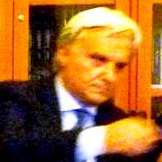The staging of Don Chisciotte by Giovanni Paisiello in the patio of a masseria (a farm in South Italy) now transformed in a resort, was intended as fun and playful. And indeed, this production of the Festival della Valle d'Itria was immersed in a truly informal, student theatrical atmosphere, but it eventually showed a certain detachment between intentions and results as one had the impression that there was a lack of empathy between the singers, the musical ensemble and the audience.
Don Chisciotte, a comedy for music, premièred in Naples in 1769 and it shows all the skills that made its 29 year-old author popular throughout Europe. The libretto by Giovanni Battista Lorenzi deals with Don Chisciotte’s visit to a noble court and the tricks that are played on him there. The protagonists are described with ironic parody: they are middle-class Neapolitan characters, familiar to late 18th century opera spectators.
Lorenzi’s text is is a pleasing combination of Neapolitan and Italian, a characteristic trait of Paisiello’s early operas. Also typical of his first works is the music: short episodes‚ recitatives sometimes followed by arioso, rhythm and graceful melodies, all elements of the compositional strategies which were to make the Paisiello one of the most popular composers of his time.
Paisiello was a master of Italian opera buffa and exerted some influence on Mozart. His orchestral writing and musical characterizations are nimble and dramatically lively. Here, his music flows playfully, full of invention with some lyrical moments. Don Chisciotte is usually considered a minor work‚ but, despite the minimal staging here, it appears coherent and mature. It goes on cheerfully, breaking the rigidity of conventional formal frames with swift figurations, traditional recitatives and some graceful and melodious arias. It is a pity that the in this production score was re-orchestrated for a small musical ensemble (piano and strings), as with its original orchestration it could have been much more enjoyable.
Due to the location which made any sort of full staging impossible, director Davide Garattini could only highlight the playful element, but he also infused his staging with typically twenty-first century concepts as separation, alienation, loss of sense and perspectives.
In fact, this mise-en-scène was too modest and difficult to appreciate, as it was very difficult to understand the progression of the story. As a result, it was impossible to decently evaluate both musicians and singers. For the musical part, the Ensemble of the Orchestra ICO della Magna Grecia, conducted by Ettore Papadia, who also played the piano, did well, but they could not substitute for the richness of Paisiello’s refined instrumentation.
The cast of singers contained no great soloists, but they were all adequate, with bright and clear voices. They all delivered nice representations of their characters, and manifestly enjoyed their roles. The protagonist was David Ferri Durà, who played a Don Chisciotte very confused by jokes and tricks that he could not understand, yet trying to keep his dignity and pride intact.
Very good were the basso buffo Salvatore Grigoli (Sancho Panza) and Iosu Yeregui (Don Platone). Effective also Nico Franchini (Don Calafrone) and the witty and brilliant ladies Shiri Hershkovitz (Contessa) and Alessandra Della Croce (Duchessa), as well as Carmosina-Dulcinea (Rosa Garcìa Domìnguez).




